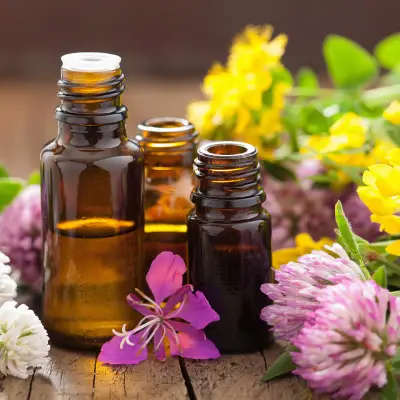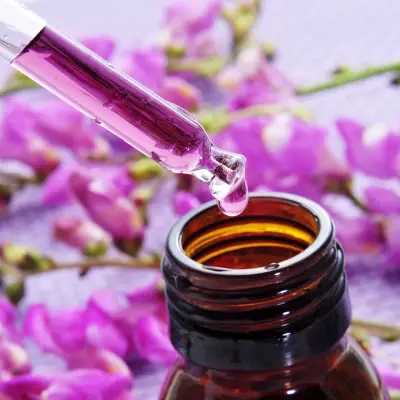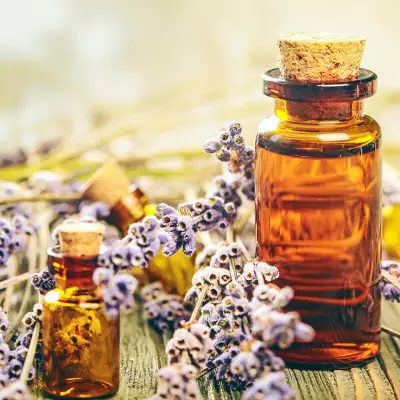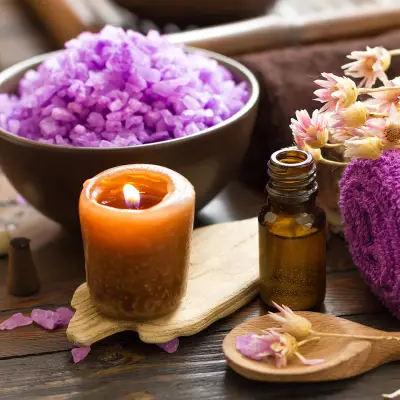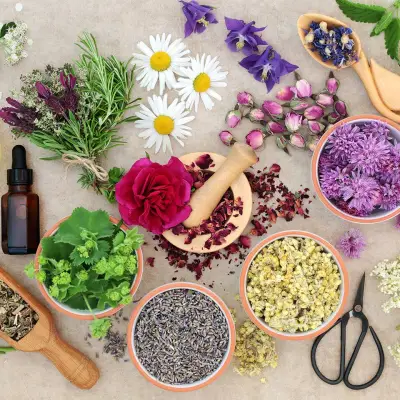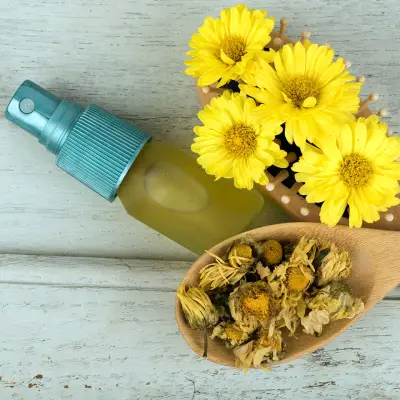But did you know that the oil extracted from rose petals can also work wonders for your skin and wellbeing? If you’ve been searching for a natural, luxurious addition to your skincare or wellness routine, rose essential oil might just be the answer.
If you're curious about the benefits of rose oil on the skin or want to explore the wider world of aromatherapy, this guide takes you through everything you need to know.
This article is for informational purposes only and does not constitute medical advice. Always consult with a qualified healthcare professional before starting any new skincare treatment, especially if you have underlying health conditions or allergies.
Jump to:
Recommended for you!
Best SellersWhat is Rose Oil?
Rose essential oil is made by steam-distilling petals from the Rosa damascena (Damask rose) or Rosa centifolia (cabbage rose). It takes a massive number of rose petals, around 10,000, to produce just one small bottle of pure rose oil. That’s one reason why rose oil is so expensive.
You might also come across rose aroma oil, which is often a diluted or blended version, and rosehip oil, which is made from the fruit (hips) of the rose bush, not the petals. While they share the rose name, their properties and uses are different.
Is Rose Oil Good for the Skin?

Rose oil can be incredibly beneficial for the skin when used correctly. It's packed with anti-inflammatory and antimicrobial properties, which makes it particularly useful for those with sensitive, dry, or mature skin types. The soothing nature of rose essential oil comes from its naturally occurring compounds such as citronellol and geraniol. These components work to calm irritation, reduce redness, and promote a brighter, more even complexion.
However, it’s important to remember that rose essential oil is highly concentrated. It should never be applied directly to the skin without being diluted first. To use it safely, always mix a few drops with a suitable carrier oil, such as jojoba, almond, or coconut oil. Applying it neat can lead to irritation or an allergic reaction, especially on delicate facial skin.
Rose Essential Oil Benefits for Skin
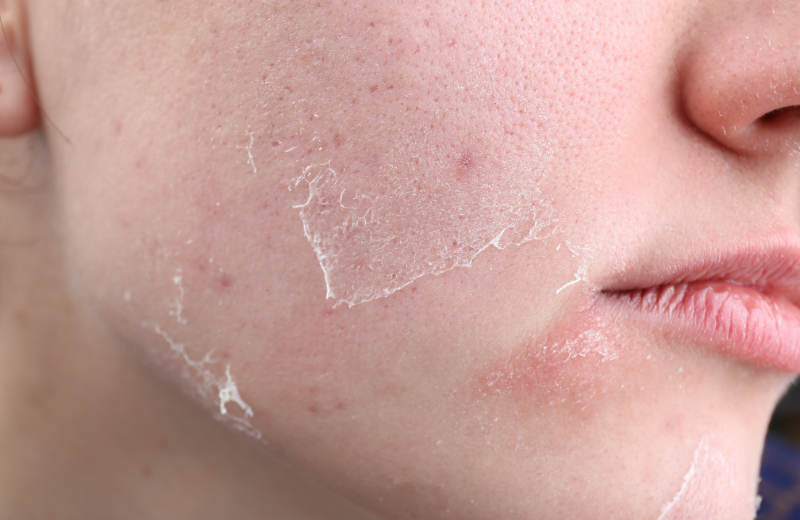
Whether you're hoping to calm sensitive areas, even out your complexion, or simply add a touch of radiance, rose essential oil offers a wealth of skin-loving benefits. Here’s how rose oil can help your skin look and feel its best:
1. Reduces Redness and Calms Sensitive Skin
Rose essential oil is widely valued for its natural anti-inflammatory qualities. This makes it especially useful for sensitive skin types, including those affected by rosacea, dryness, or occasional flare-ups. When diluted and applied properly, rose oil can help calm discomfort, reduce redness, and restore balance to reactive skin.
Its gentle yet effective nature makes it an excellent choice for people looking to soothe their skin without harsh ingredients, offering comfort and visible relief from irritation or environmental stress.
2. Supports Hydration and Moisture Retention
While rose oil isn't a moisturiser on its own, it helps your skin lock in moisture. When blended with a carrier oil or added to creams, it creates a barrier that slows down water loss, supporting long-lasting hydration. This can leave your skin feeling softer, plumper, and more nourished, making it ideal for dry or mature skin types.
Its luxurious texture and aroma also add a sense of pampering to your routine, enhancing both skin feel and mood.
3. Promotes Radiance and Even Skin Tone
Rose essential oil is often used to help brighten the complexion and improve overall skin tone. Its natural compounds can assist in reducing the appearance of blemishes, dark spots, and minor scarring. Over time, regular use may contribute to a more radiant, even-toned look.
Thanks to its regenerative properties, rose oil encourages healthy cell turnover, which helps maintain skin clarity and a youthful glow.
4. Offers Gentle Antibacterial Support
The antimicrobial effects of rose oil make it helpful for blemish-prone skin. While not a harsh spot treatment, it can play a supportive role in reducing the presence of acne-causing bacteria and calming active breakouts. When combined with a consistent skincare routine, it may help keep skin clearer and more balanced.
Because of its gentle profile, rose oil can be used regularly without overwhelming the skin, provided it’s properly diluted first.
5. Encourages a More Youthful Appearance
Rose oil contains natural antioxidants that help protect the skin from the signs of ageing, such as fine lines and dullness. These compounds support collagen production and cell renewal, contributing to smoother, firmer skin over time.
Its uplifting scent also has an emotional effect; many people find that using rose oil makes them feel more relaxed and confident, which can shine through in their overall appearance.
6. Softens and Soothes Dry Patches
If your skin often feels tight, flaky, or weather-worn, rose oil can provide a comforting boost. When blended with nourishing carrier oils, it helps relieve dryness, restore softness, and improve texture. It's especially useful in winter or after sun exposure, when the skin may need extra support.
The comforting effect of rose oil extends beyond the surface, making your skincare routine feel like a moment of self-care and relaxation.
How to Use Rose Essential Oil on Your Skin
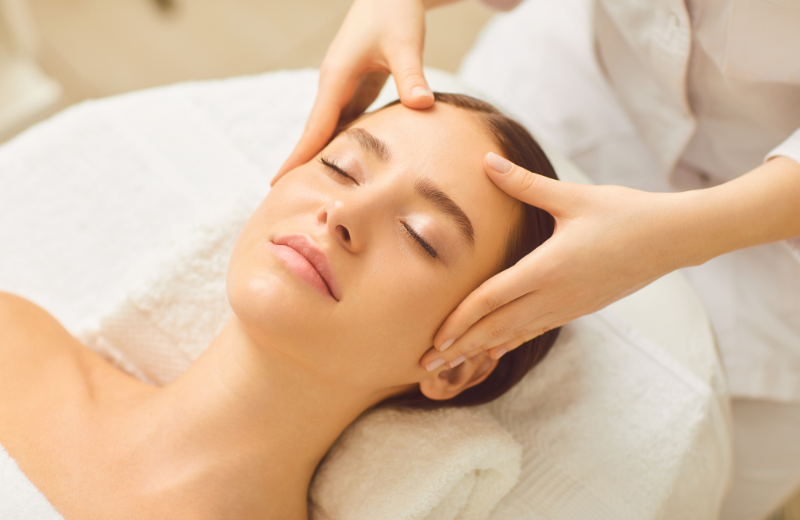
Rose essential oil can be a beautiful addition to your skincare routine, but like all essential oils, it needs to be used safely and thoughtfully to avoid irritation and achieve the best results.
- Always Dilute Before Applying: Rose oil is highly concentrated and should never be applied directly to the skin. To use it safely, blend 1–2 drops with a teaspoon of carrier oil such as jojoba, almond, or coconut oil. This helps prevent irritation and allows the oil to be evenly distributed across the skin.
- Add to Your Moisturiser: A simple way to enjoy the benefits of rose oil is to mix it into your daily moisturiser. Start with 1–2 drops per 30ml of product, and adjust based on how your skin responds. This creates a nourishing blend that enhances hydration and gives your skin a soft, healthy glow.
- Use as a Targeted Treatment: For areas of concern, such as dry patches, dark spots, or mild redness, you can apply a diluted rose oil blend directly to the affected area. Doing this once or twice a day may help improve tone and texture, while also calming irritation.
- Incorporate into Facial Massage or Steam: Add a few drops of rose oil to a bowl of hot (not boiling) water for a relaxing facial steam. The vapour helps open pores, allowing the oil’s beneficial compounds to absorb more effectively. Alternatively, blend a few drops into a carrier oil and use it for a gentle facial massage. This encourages circulation and gives your skin a natural boost.
- Use With Care: Because rose essential oil is so potent, even small amounts can be powerful. Always perform a patch test before using it on larger areas of your face or body. If you have very sensitive skin, start with lower concentrations and watch for any signs of irritation. Avoid using it undiluted, and keep it away from the eye area and broken skin.
What to Pair with Rose Essential Oil
If you’re blending essential oils, rose pairs beautifully with:
- Lavender (for calming effects)
- Geranium (for balance)
- Sandalwood (for depth and warmth)
- Patchouli (for grounding)
Experiment with different combinations to see what feels best for your skin and mood.
Recommended for you!
Best SellersFrequently Asked Questions About Rose Oil for Your Skin
Can I Put Rose Essential Oil on My Face?
You can put rose essential oil on your face, but only if diluted with a carrier oil. When properly diluted, it can help soothe, hydrate, and improve the overall texture of your skin.
Can Rose Oil Grow Hair?
While not typically used for hair growth, some people find it helps soothe the scalp and reduce dryness. For targeted hair benefits, other oils like rosemary oil may be more effective. However, rose oil may still support scalp health and contribute to a more balanced hair care routine.
Can You Mix Lavender and Rose Oil?
Lavender oil and rose oil complement each other beautifully in both scent and therapeutic effects, especially for relaxation and sleep. Together, they create a calming blend that can be used in facial oils, diffusers, or bedtime routines.
What Does Rose Oil Repel?
Interestingly, rose oil may help repel some insects due to its natural compounds, but it’s not as powerful as oils like citronella or eucalyptus. Still, its pleasant fragrance makes it a gentle option for those looking for a softer alternative to harsher repellents.
Are There Any Side Effects to Rose Essential Oil?
Some people may experience irritation or an allergic reaction. Always do a patch test before full application. If you’re pregnant, breastfeeding, or have hormone-sensitive conditions, it’s best to consult a healthcare professional first.
Study Our Aromatherapy Diploma Course for £29
If you’re fascinated by the benefits of rose oil, why not turn your interest into a skill? At Centre of Excellence, we offer an Aromatherapy Diploma Course that explores different essential oils, blending techniques, safety precautions, and how to apply your knowledge at home or professionally. As a special offer, you can access this course for just £29!


